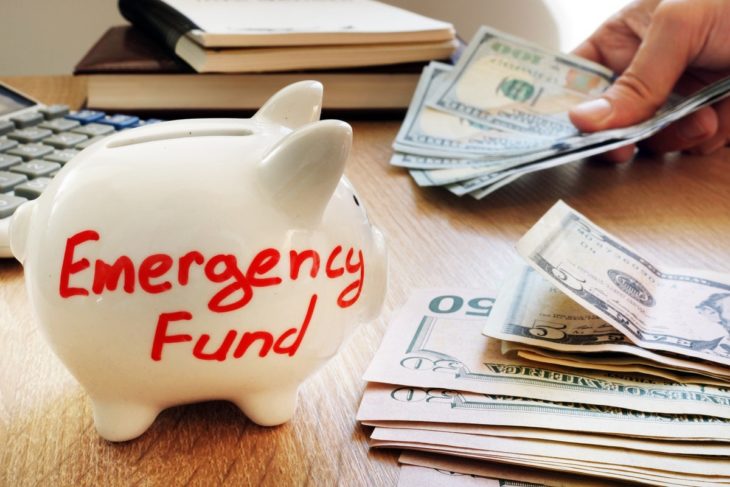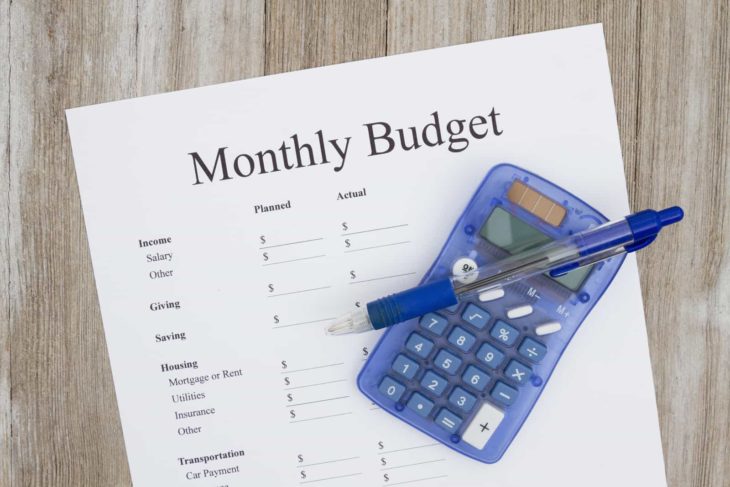This past payday, I was as excited about having the funds to bring home this season’s faux fur vest as I was about skimming 10 percent off the top and watching our savings account increase. And I have to admit, I’m pretty proud of myself for being responsible enough to make that deposit regularly – so proud of myself that I felt totally justified buying that snuggle-worthy vest. (The fact that it’s faux fur? You can’t get any more guilt-free.)
Maybe you’re like me, and you get a sense of accomplishment every time you make that deposit in your savings account. But we all work hard for our money … is just putting some of it aside making it work hard enough for us? Before you get too proud of yourself for being a savings queen, read this advice from Susan Hirshman, president of SHE LTD, a consulting firm focused on enhancing the financial literacy of women. The author of Does This Make My Assets Look Fat? A Woman’s Guide to Finding Financial Empowerment and Success, Hirshman offers advice for making sure that you’re avoiding some common savings pitfalls.
Contents
1. Establish your emergency fund first

Source: The Motley Fool
Before you save for anything else, you need to save for a rainy day. And in these challenging times, a rainy day isn’t when you’re bored and want to go shopping, it’s when you’re drowning and need a life raft. “An emergency fund should be able to cover your expenses for the length of time it would take you to find employment,” Hirshman explains. “The whole point is to have funds in times of stress so you don’t have to go into debt or dip into your retirement.”
This fund needs to be kept separate from your other savings. “Combined, it is too easy to use the emergency fund for variable short-term goals (such as emergencies like you have to upgrade to the commercial grade stainless stove),” says Hirshman. In fact, she recommends putting your emergency fund in a money market fund with limited check-writing ability for the additional layer of discipline it enforces.
2. Make long-term saving a part of your monthly budget

Source: bigstock
You need to make sure you know what you’re saving for. Are you setting aside cash for vacations and Christmas? Or for a house down payment and retirement? You probably want to do a little of each. Once you’ve established your emergency fund, savings goals can be divided into long- and short-term categories. It’s important to keep these funds separate, and to make sure you’re saving for both every month. Hirshman cautions, “Generally, women deal with the family’s day-to-day finances rather than the investment plan and thus have an inclination to focus on the short-term goals. The bottom line is that saving for the long-term needs to be part of your monthly budget.” Whether you decide to split the amount that you’re setting aside each month between the categories or increase the amount you’re saving each month, make sure you’re putting money into your long-term savings so “someday” doesn’t catch you off guard.
3. Don’t wait to start saving

Source: hercampus
If you aren’t saving already, you need to start yesterday. You may feel like you’re living paycheck to paycheck, but there’s no such thing as earning enough to save. “I have seen women make the mistake of thinking that they aren’t rich enough to save, they don’t have to save because a man is their financial plan, or they don’t have the time to focus,” Hirshman says. If you let yourself fall into this way of thinking, you will never find the right time to save.
4. Stop charging

Image by TheDigitalWay from Pixabay
Figure out the amount you need each month to cover your basic needs, such as housing, and your savings goals. Subtract this total from your income and the amount that’s left is what you should be using to support your lifestyle. “Now, look closely at that number and at your monthly credit card charges,” says Hirshman. “Are they in line? Often they aren’t. Here is where you have to do some work.” Putting cash aside religiously each month won’t do you any good if you’re running up debt faster than you’re building your savings.
5. Have a retirement plan

Source: StrategieFinanz
Retirement’s a huge goal, and you need a specific plan for how to reach it. “Often people think that they will spend less money in retirement but based on what we are seeing today, that’s not true. People’s lifestyles usually stay the same, and expenses like healthcare or home maintenance have greater impact,” Hirshman says. “The only way to ensure that you are going to be able to retire is to develop a plan and review it on an annual basis using a financial planning tool. Your 401(k) plan, your mutual fund company or bank may have tools on their website.”
6. Diversify

Source: Pixabay
Remember how your grandmother always used to tell you not to put all your eggs in one basket? She was likely talking about your savings plan (okay, and maybe that deadbeat boyfriend she didn’t like). “An investment that is too risky is anything that is concentrated. No matter your age, you want a portfolio that is constructed in a way that it gives you the best return. This is accomplished only through balance, diversity and moderation,” warns Hirshman. You may trust your company, your bank, or even your husband, but if all your cash is in one savings vehicle, you’re doing yourself a disservice.
7. Remember … the only person responsible for you is you

Source: AdobeStock
Your husband may be the most brilliant, money-savvy, trust-worthy guy on the planet, but if you’re blindly giving him total control of your finances, you’re still asking for trouble. “The most dangerous assumption is that your husband has taken care of everything in a well thought-out manner. Too often, this is far from the case. Studies show that men tend to be overconfident in their investing ability and tend to take on more risk than they anticipated, their brilliant investment plan is in the desk drawer and not executed, or they are spending instead of saving,” Hirshman says.
Of course, your husband may do everything right, but if you aren’t sure exactly how he’s managing your funds, then you need to start taking responsibility for your own future. “Even if you your husband is the only one that works outside of the home, you still have ownership over those funds and you must be an active participant in the discussion. I have seen too many bad things happen to too many good women because they assumed everything was okay.” Assuming someone else is taking responsibility for your savings isn’t just a risk for the married women, either. Hirshman cautions, “More and more companies are leaving it to the employees themselves to create their own retirement savings. And if we are to learn anything from the generation that is retiring today, it’s that the only person responsible for you is you.”
Original by Colleen Meeks
